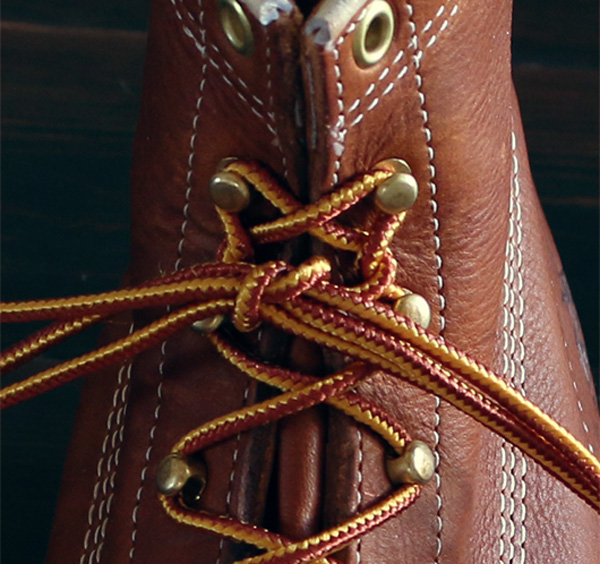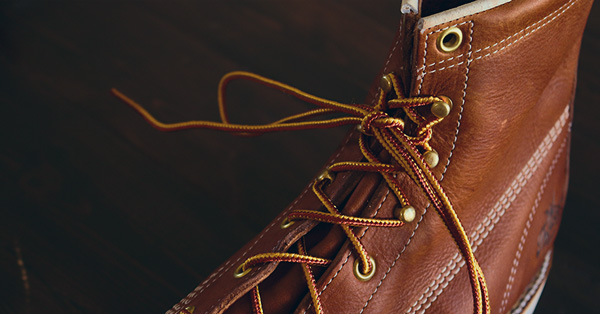Because new boots shouldn’t mean blisters.
Ah, fall. Perhaps the best time of year for men’s style. The cooler weather allows us to take advantage of multiple layers, creating a smart, put-together look. It also means you may be gearing up with some new boots. There’s something reminiscent of Christmas morning when I open a box of new, rugged boots. The creaseless leather inspires new adventures…and that new leather smell – nothing else like it. You can find many options that are hardy and built to last, and there’s something about them that just makes you feel ready to take on the day.
The problem is, it can be hard to find a pair of boots that just fit quite right. Since many are still simple designs, with the upper being almost entirely one layer of leather, they lack the foam and rubber that are present in athletic shoes that conform to your foot. Many of us find ourselves in-between half-sizes, or with one foot slightly different from the other, but even on perfectly fitted new boots the breaking-in period can be a painful one.
One common problem is the heel of your foot not staying in place. This slippage can cause blisters and other annoying problems that many guys just assume they have to put up with.
Well I’m happy to say, there’s a super-simple lacing technique that should stop all the slipping and provide a comfortable, snug fit with your beautiful new boots. Used for ages by climbers, runners, and shoe store salesmen, utilizing this “lock lacing” technique known as the Heel Lock can make a surprisingly dramatic difference in how your footwear fits.
The heel lock lacing technique creates a more secure fit around your ankle and heel by increasing tension at the top of the boot without restricting your foot. This reduces unnecessary movement of your heel inside the boot, which is often the main cause of rubbing and blisters. By locking your heel in place, the lace tension prevents your foot from sliding up and down, which keeps friction to a minimum.
The lacing technique can be used for sneakers as well.
(Like the look of the boots featured here? The American-made moc toe boots are from Thorogood.)
Step 1: Do not cross the top two speed hooks, instead lace vertically
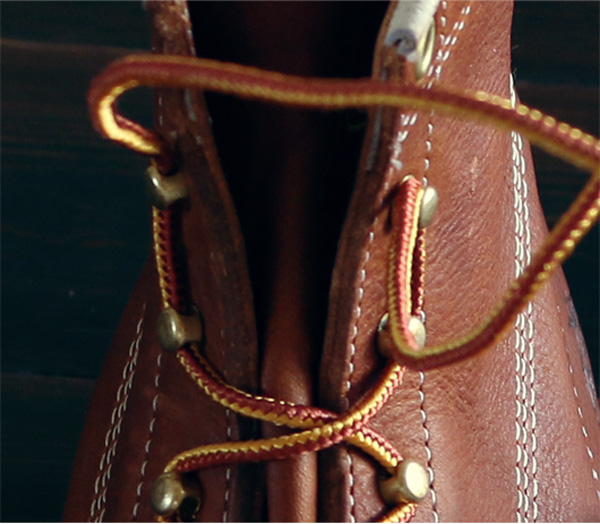
This can also be done if your boots have eyelets instead of speed hooks.
Step 2: Cross over, and pass the lace underneath the vertical lace
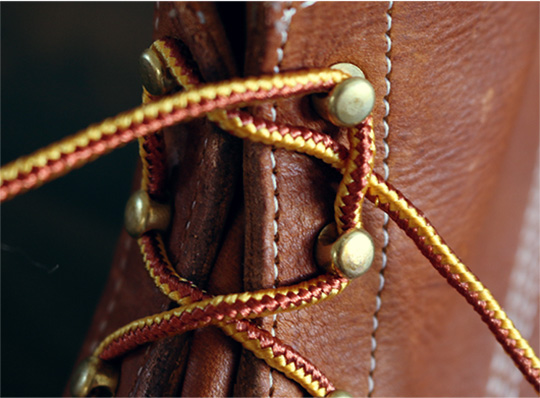
Step 3: Repeat with the other end
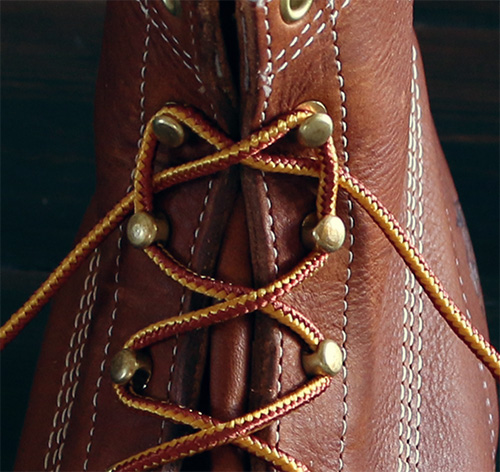
Step 4: Pull the ends towards your toes to tighten, then start a normal knot
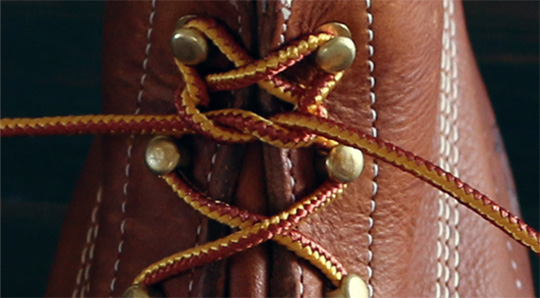
Step 5: Finish the standard bow
